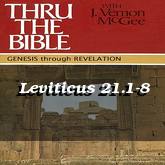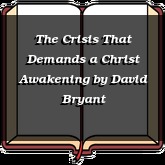"The upright love thee"
—Song of Solomon 1:4
Believers love Jesus with a deeper affection then they dare to give to any other being. They would sooner lose father and mother then part with Christ. They hold all earthly comforts with a loose hand, but they carry him fast locked in their bosoms. They voluntarily deny themselves for his sake, but they are not to be driven to deny him. It is scant love which the fire of persecution can dry up; the true believer's love is a deeper stream than this. Men have laboured to divide the faithful from their Master, but their attempts have been fruitless in every age. Neither crowns of honour, now frowns of anger, have untied this more than Gordian knot. This is no every-day attachment which the world's power may at length dissolve. Neither man nor devil have found a key which opens this lock. Never has the craft of Satan been more at fault than when he has exercised it in seeking to rend in sunder this union of two divinely welded hearts. It is written, and nothing can blot out the sentence, "The upright love thee." The intensity of the love of the upright, however, is not so much to be judged by what it appears as by what the upright long for. It is our daily lament that we cannot love enough. Would that our hearts were capable of holding more, and reaching further. Like Samuel Rutherford, we sigh and cry, "Oh, for as much love as would go round about the earth, and over heaven-yea, the heaven of heavens, and ten thousand worlds-that I might let all out upon fair, fair, only fair Christ." Alas! our longest reach is but a span of love, and our affection is but as a drop of a bucket compared with his deserts. Measure our love by our intentions, and it is high indeed; 'tis thus, we trust, our Lord doth judge of it. Oh, that we could give all the love in all hearts in one great mass, a gathering together of all loves to him who is altogether lovely!
Ⓒ 1996-2021 Heartlight, Inc. This material may not be reproduced in part or whole for commercial use without written consent. Written by Charles H. Spurgeon.

Continue reading...
—Song of Solomon 1:4
Morning Thought
Believers love Jesus with a deeper affection then they dare to give to any other being. They would sooner lose father and mother then part with Christ. They hold all earthly comforts with a loose hand, but they carry him fast locked in their bosoms. They voluntarily deny themselves for his sake, but they are not to be driven to deny him. It is scant love which the fire of persecution can dry up; the true believer's love is a deeper stream than this. Men have laboured to divide the faithful from their Master, but their attempts have been fruitless in every age. Neither crowns of honour, now frowns of anger, have untied this more than Gordian knot. This is no every-day attachment which the world's power may at length dissolve. Neither man nor devil have found a key which opens this lock. Never has the craft of Satan been more at fault than when he has exercised it in seeking to rend in sunder this union of two divinely welded hearts. It is written, and nothing can blot out the sentence, "The upright love thee." The intensity of the love of the upright, however, is not so much to be judged by what it appears as by what the upright long for. It is our daily lament that we cannot love enough. Would that our hearts were capable of holding more, and reaching further. Like Samuel Rutherford, we sigh and cry, "Oh, for as much love as would go round about the earth, and over heaven-yea, the heaven of heavens, and ten thousand worlds-that I might let all out upon fair, fair, only fair Christ." Alas! our longest reach is but a span of love, and our affection is but as a drop of a bucket compared with his deserts. Measure our love by our intentions, and it is high indeed; 'tis thus, we trust, our Lord doth judge of it. Oh, that we could give all the love in all hearts in one great mass, a gathering together of all loves to him who is altogether lovely!
Ⓒ 1996-2021 Heartlight, Inc. This material may not be reproduced in part or whole for commercial use without written consent. Written by Charles H. Spurgeon.
Continue reading...







